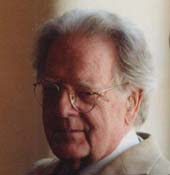
Northrop Frye states, "The novel tends to be extroverted and personal; its chief interest is in human character as it manifests itself in society" (308). He describes this quality in Ulysses as, "the clarity with which the sights and sounds and smells of Dublin come to life, the rotundity of the character drawing, and the naturalness of the dialogue" (313). For Frye the novel is only one of the prose narrative forms, the others are: romance, confession, and anatomy. Frye elaborates on how the four prose narrative forms manifest themselves in Ulysses when he says, "Ulysses then, is a complete prose epic with all four forms employed in it, all of practically equal importance, and all essential to one another, so that the book is a unity and not an aggregate" (314).
I think Frye has it right. I have yet to find anyone else who who agrees with him. Some call Ulysses a "novel" without examining what that means. However, many view it for its structure and how the plot develops within that structure---the Freytag model. Here is a Wikipedia discussion of the Freytag model.
http://en.wikipedia.org/wiki/Dramatic_structure
Despite this caveat, "Freytag's analysis was intended to apply not to modern drama, but rather to ancient Greek and Shakespearean drama," most novels have the structure described in the article. If a prose narrative doesn't follow this model, including the Peripeteia (climax), the reader may have the feeling that something is absent. With Ulysses knowledgeable authorities differ on which episode is the one that contains the Peripeteia.
The page citations above are from Anatomy of Criticism by Nothrop Frye. The photo is of Northrop Frye.

